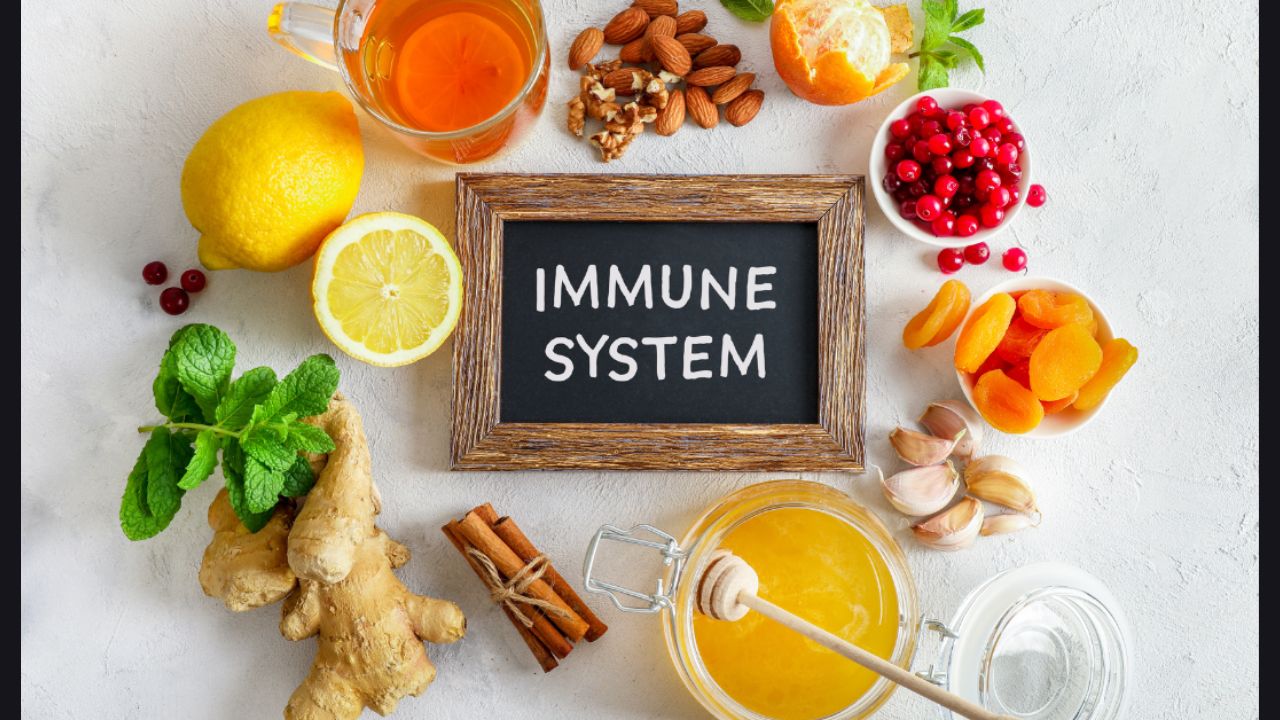Natural Ways to Strengthen Immunity to Fight Any Disease
The immune system is a vital defense mechanism that keeps bacteria and viruses in check, either by stopping new infections or fighting off existing ones.

Natural Ways to Strengthen Immunity to Fight Any Disease: Illness may seem like it will happen no matter what, but are there ways to better prepare your body for an attack? Both yes and no. That being said, there is no such thing as a magic immunity pill. But we can give you some natural ways to boost your immune system.
How the immune system works
The immune system is a vital defense mechanism that keeps bacteria and viruses in check, either by stopping new infections or fighting off existing ones. Lymphoid glands produce lymphocytes, which help maintain the immune system’s balance. However, inflammation, a reaction that can be acute or short-lived, can harm the body’s health and increase the risk of long-term illnesses like cancer or heart disease.
Food plays a crucial role in maintaining good health, as it provides vitamins, minerals, and other nutrients. Poor diets can damage the immune system, as refined sugars, refined carbs, processed foods, and trans fats can cause inflammation. C-reactive protein (CRP) can be set off by these foods, signaling the body to expect inflammation. Many simplified and processed foods lack essential vitamins and minerals, and insufficient iron or vitamins A, C, and D can hinder white blood cell production.
To combat inflammation and free radicals, naturally occurring pain relievers can help manage swelling and reduce symptoms. Antioxidants protect against free radicals and repair damaged cells and tissues during inflammation.
Natural Ways to Strengthen Immunity to Fight Any Disease
Foods that make your immune system stronger
You can use the Harvard University Health Plate to help you find healthy foods and start eating that way. You should try to get 50% of your calories from fruits and vegetables, 25% from whole grains, and 25% from lean meats and fats.
These are some popular food groups that you can pick from.
Fresh fruits and vegetables:
- Leafy greens (lettuce, kale, spinach and Swiss chard)
- Cruciferous vegetables (broccoli, Brussels sprouts, cabbage and cauliflower)
- Tomatoes
- Apples
- Citrus fruits (grapefruit and oranges)
- Berries (blackberries, blueberries and raspberries)
Grain types:
- Whole wheat
- Barley
- Quinoa
- Oats
- Brown rice
Lean meats and proteins:
- Seafood
- Poultry
- Beans (legumes, lentils and peas)
- Nuts (almonds and walnuts)
Berry, leafy green, and cruciferous vegetables are some of the fruits and vegetables that are high in antioxidants. One of the most well-known greens, kale, also has omega-3 fatty acids.
Fatty acids called omega-3 can be found in seafood, nuts, and some veggies. They help reduce swelling. For breakfast, mix flaxseeds, chia seeds, or walnuts into your oatmeal or yogurt. Choose fish that has been baked or steamed over beef and pork that have more fat. Some seafood, like crabs, has a lot of zinc, which helps keep your immune system in check.
Butter and other oils that are high in fatty and trans fats should not be used to cook. Instead, use olive or canola oil. Also, don’t be afraid to add spices and flowers. Turmeric, oregano, rosemary, thyme, basil, and cinnamon can all help lower swelling.
Check Out: Avian Flu Alert: Symptoms, Treatment for Humans
Vitamins C and D
Because it makes more white blood cells, vitamin C is an antioxidant that helps fight diseases. Fruits and veggies that contain it include oranges, lemons, grapefruits, bell peppers, broccoli, Brussels sprouts, and cauliflower. Vitamin D isn’t found in large amounts, but it can help your defense system by lowering inflammation.
Fatty fish like salmon, tuna, or mackerel, as well as milk products, cheese, mushrooms, and egg yolks, are the best things to eat. Vitamin D can also be taken in through the skin, so eating it outside is a good idea.
Lift weights
It’s impossible to avoid stress, and it can hurt your immune system and cause mental health problems like depression and worry. Cortisol is a hormone that helps fight inflammation and is released when you are stressed. On the other hand, making cortisol all the time can cause inflammation over time.
People usually only think of exercise in terms of its health benefits, but it can also help you deal with stress. It can help to work out for 30 minutes three to five times a week, whether you do it inside or outside. You can also do strength or cardio exercises at home to help.
Yoga or meditation can also help because they can calm the body down and make it stronger and more flexible. Sarah McLean, a meditation expert, has a series on awareness, and many yoga studios in the area now offer online classes.
Get enough rest
A good night’s sleep not only makes us feel better, but it also makes our defense systems stronger. Cytokines are important for fighting off infections like the flu and are made by the body while you sleep. These cytokines and antibodies may not be made as much when you don’t get enough sleep.
People should get at least eight hours of sleep every night. Depending on their age, kids need nine to ten hours or more.
Check Out: 2 Surprising Reasons Skipping Breakfast Isn’t Harmless
